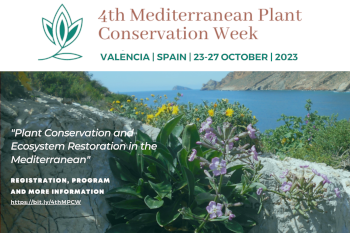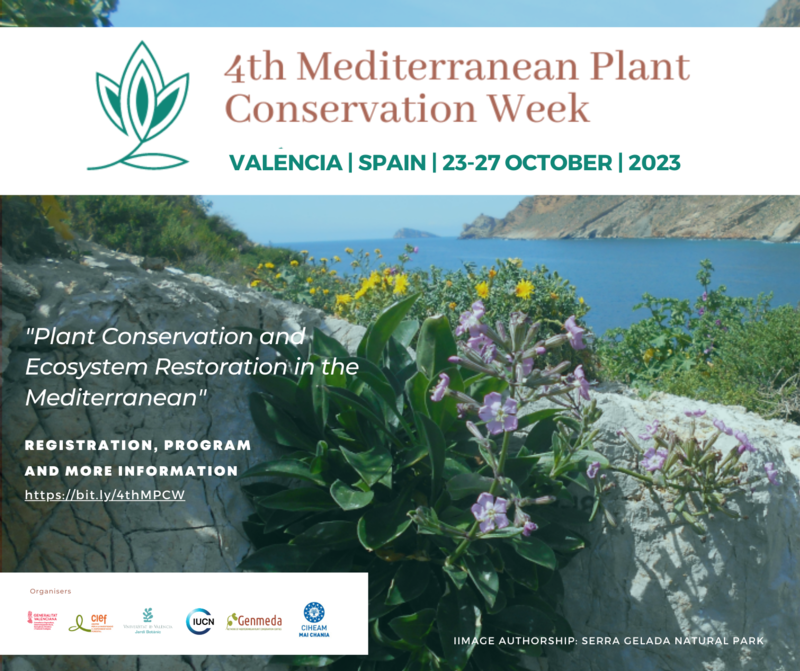4th Mediterranean Plant Conservation Week, Valencia, 23-27 October 2023-Registration open

CIHEAM Mediterranean Agronomic Institute of Chania is co-organiser of the 4th Mediterranean Plant Conservation Week together with the Centre for Forestry Research and Experimentation (CIEF) of the Valencian Region, the Botanical Garden of Valencia, the International Union for Conservation of Nature (IUCN) and GENMEDA.
REGISTRATION IS OPEN - ABSTRACT SUBMISSION UNTIL 30 MAY 2023
VENUE: Botanical Garden of Valencia
Link for more information, registration and submission of abstracts: https://bit.ly/4thMPCW.
The 4th Mediterranean Plant Conservation Week (4th MPCW), 23-27 October 2023, is a congress that aims to bring together researchers and managers involved with the conservation of wild plants and their habitats around the Mediterranean. For this 4th edition, the MPCW will expand its initial goal - centred on the conservation of species and the relationships between people and the wild or cultivated plants - towards the complementary recovery of habitats, as a contribution to the United Nations Decade for Ecosystem Restoration.
This congress will be a meeting point where different opinions and experiences from diverse fields of knowledge will converge. This can be done by connecting experts on plant conservation and ecological restoration, being conscious that the last goal of plant rescue is not possible without the full recovery of the ecological functions on site.
Additionally, the 4th MPCW intends to be a forum where experiences from the different sides of the Mediterranean region can meet and establish links for future cooperation projects. Specialists from Southern Europe, Northern Africa, and the Middle East can find here a forum for the conservation of a common natural heritage, including plants, their habitats, and the knowledge on how to manage and use them in a sustainable way.
The 4th MPCW is a window to show research results and experiences in form of oral presentations and posters, not only from the plant or ecological sciences but also about the relationships between the public and the plant conservation world (citizen science, ethnobotany, local involvement, bottom-up initiatives, landraces, etc.), opening a new paradigm for the next decades around the Mediterranean: The plants are for the people, but with the people.


